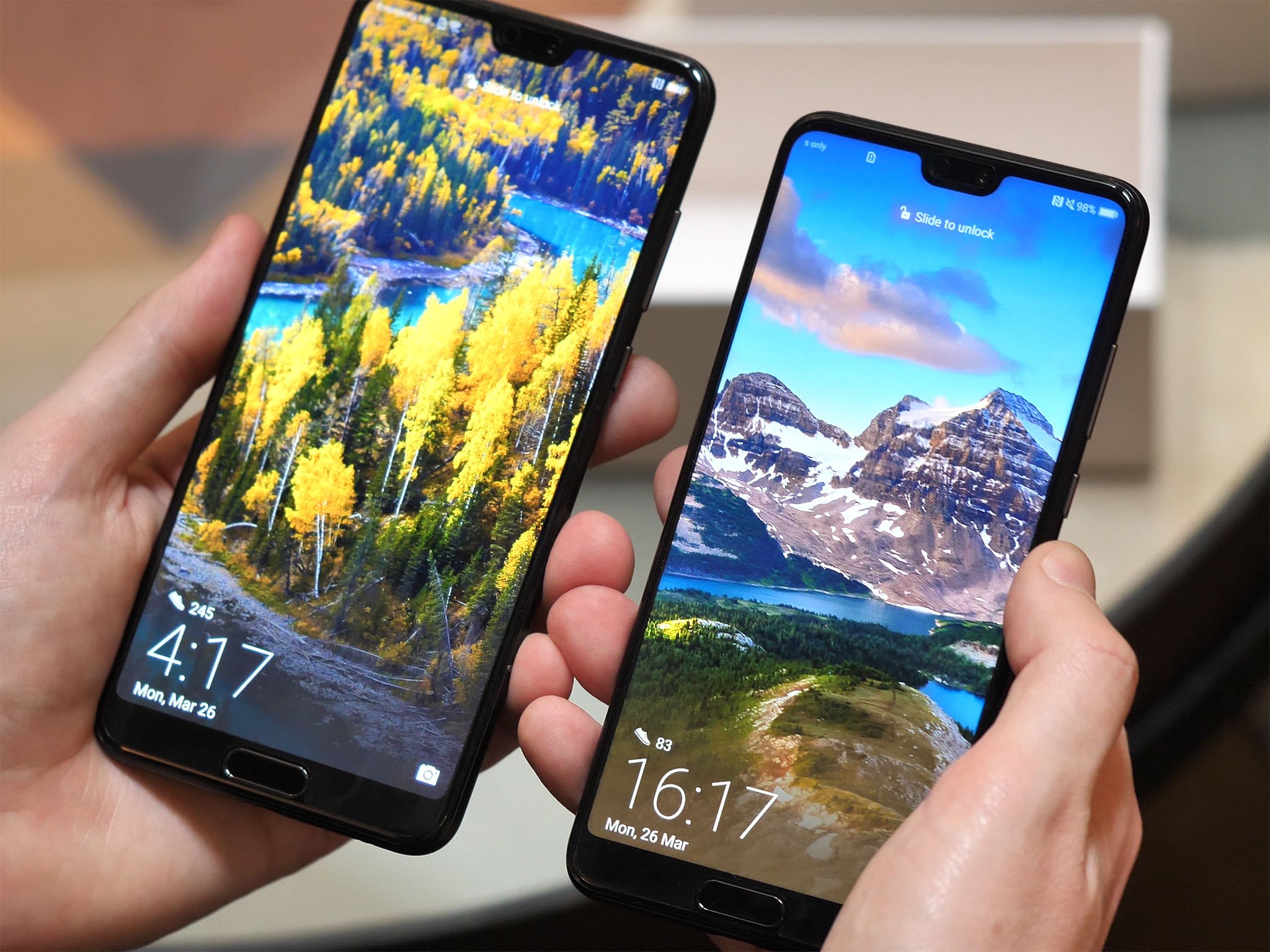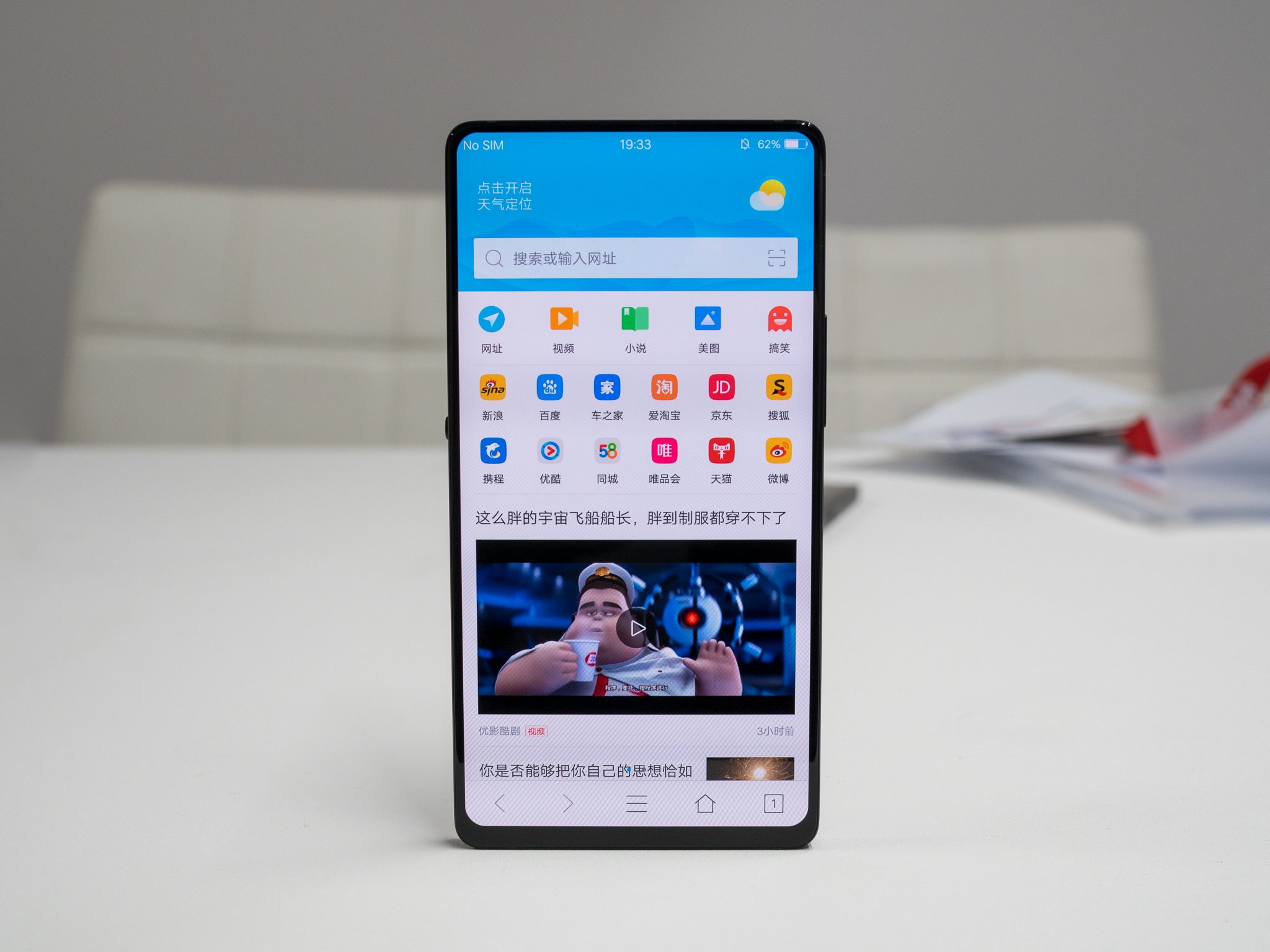Proper messaging is half the battle.
It was all foreshadowed last year by the Essential Phone, and kicked into the public consciousness with the iPhone X. The notches are here to stay, and 2018 will be the year where notched displays are the norm rather the exception.
ASUS cringingly revealed its ZenFone 5 back at MWC. The new Huawei P20 and P20 Pro have notches on two different display aspect ratios. OnePlus chose to straight-up pre-announce that the OnePlus 6 will have a notch before it unveiled the phone. It's all but confirmed that LG's 2018 flagship will have the same.
Notches are happening, that's just how it is. They won't be here forever, as technology will soon get to the point where we can have "full screen" smartphones without the crutch of a notched portion, but for the next couple generations it's something we'll have to get used to. And I'm all for it — it's just a step along the steady march of innovation. My biggest issue with phones that have display notches right now is that very few companies are doing a good job (or any job, in many cases) of justifying the notch's existence on their phone.
ASUS showed us exactly what not to do with the announcement of the ZenFone 5, first making the notch bigger than it needs to be to hold the sensors and cameras, then unabashedly saying it copied Apple for the design with no further justification. Huawei didn't make any big justification of it one way or the other with the P20, but to its credit at least kept the width down to just what was necessary to hold the components inside and also added an easy way to fill in the portions of the screen next to the notch if you want a flat top edge. OnePlus has done the best job yet, and the OnePlus 6 isn't even official — the CEO explains simply that by having a notch, you're going to get more screen in the same package and the software will handle any potentially awkward app situations just fine. Look, it's possible to handle this properly!
People clearly have a fear of the notch. Each time a phone is leaked or unveiled with one, the phone-buying public gets upset. They think that adding a notch is removing usable display space, but actually it's at worse a break-even proposition and in many cases an addition of usable space. People don't really "get" notches yet, and even though we have many phones with them there are still plenty without, so it's the company's job to explain why they included a notch on their phone and why we should be okay with it. Far too often it's been a sort of "well everyone else is doing it" unspoken justification, and there's far more to it than that.
It's a tough line to walk. Adding a notch is not a decision that comes without downsides. There are trade offs here, but if you look at notches objectively it's a net positive — and it's something that won't be here forever. Companies just need to be smart about this and do a better job of explaining the "why" part as we make this transition. So far, few have done a good job.
Let's wrap it up with a few other random thoughts from the week:
- Catching a lot of hate, per usual, on my latest editorial talking about how I use the Galaxy S9+ despite its software, not because of it.
- A lot of people got the point, though: the Galaxy S9 is still a great phone, and Samsung's software is manageable, but it has to be managed to be useful and that's a bad thing.
- Samsung's hardly alone in this respect, as Huawei and LG and others face similar issues. But Samsung is front-of-mind right now with the Galaxy S9 launch.
- I decided to charge up and use my Pixel Buds the other day. They paired up with the Galaxy S9+ just fine and I'm reminded of how many good aspects they have. Still not a fan of the charging case and the touch controls can be finicky, though.
Have a fantastic Easter weekend, everyone!
-Andrew
from Android Central - Android Forums, News, Reviews, Help and Android Wallpapers https://ift.tt/2IjVmHz
via IFTTT


No comments:
Post a Comment